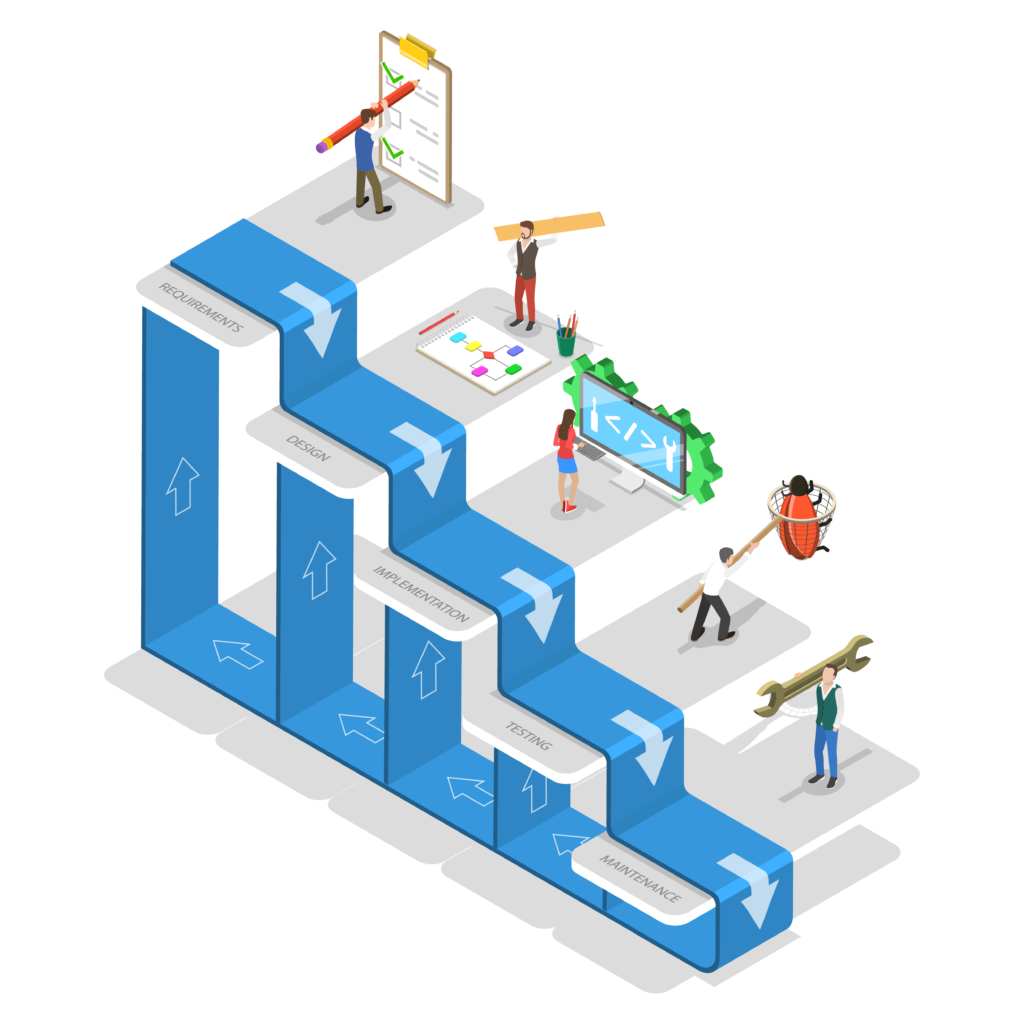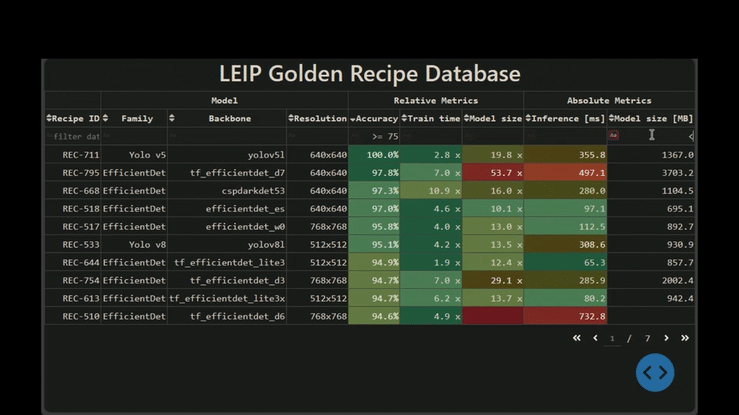Make data-driven design decisions with LEIP Design

In a recent webinar, we shed light on the potential of LEIP Recipes to accelerate meaningful results, enhance model optimization, and minimize the time and effort invested in machine learning projects. LEIP Recipes are flexible templates within the Latent AI Efficient Inference Platform (LEIP) that equip your team with the tools necessary to work with greater DevOps for ML efficiency and effectiveness.
Read more in Part 1, “Faster ML Project Design and Creation with LEIP Recipes“
In Part 2, we’re introducing the LEIP Recipe Designer API, a python API that enables you to programmatically design and execute complex ML systems. This empowers users to harness the capabilities of LEIP Recipes to make informed design choices, explore a variety of system configurations, and ultimately find the best model for their specific data, constraints, and requirements. The LEIP Recipe Designer API enables agile design and exploration, enhancing your ability to find the best model for your data faster than ever before.
LEIP Recipe Designer API: Streamlining ML Model Development
In the fast-paced world of machine learning (ML), finding the right model for your data while meeting constraints and requirements can be a daunting task. The LEIP Recipe Designer API transforms your ML model development process by providing the tools you need to navigate this complex landscape efficiently.
Understanding the Challenge
When designing ML systems, you likely face various constraints, such as data availability, hardware limitations, power, latency, and accuracy requirements, not to mention the tight timelines to move from lab feasibility to prototype and production. To illustrate, imagine you’re tasked with creating a real-time drone analytics system that detects vehicles from a top-down view. This project involves a sequence of design steps, including data engineering, model design, optimization, system integration, and deployment.
Each step involves critical decisions, such as selecting the ML model and targeting hardware for training and inference. These decisions can quickly become complex and affect the overall system performance. Often, these decisions are made in isolation, leading to a one-way and sequential “waterfall” process where teams downstream are left to deal with the consequences of choices made upstream. This lack of insight across the pipeline hinders the ability to make locally holistic decisions and adapt to changes efficiently.

The Waterfall Effect
For instance, the lab might develop a model with impressive accuracy but fails to consider the hardware constraints for deployment. Once it reaches the field, it becomes apparent that the model is too slow or too large, and you face a dilemma: should you change the hardware or find a more suitable model for the available hardware? This type of predicament is a common consequence of the waterfall model.
Additionally, if your inference hardware changes during productization or updates due to technological advancements, you might need to restart the entire design process, causing significant delays. Restarting under such circumstances is challenging and inefficient.
Empowering Data-Driven Design
The LEIP Recipe Designer API provides an innovative solution to these challenges. It enables you to describe your ML system’s aspects, from data to deployment, in a semantically meaningful way. All team members can then access this shared source of truth about the system design. This empowers teams to make design choices with greater flexibility, as upstream decisions can be easily adjusted when downstream issues arise, and vice versa.
LEIP Recipes: A Paradigm Shift
LEIP Recipes transform the traditional piecemeal approach to ML design into an agile, design-based exploration process. You no longer need to rely on opportunistic design choices or blindly follow trends in ML models. Instead, you can confidently select models and components that align with your design requirements. LEIP Recipes streamline your development process and provide well-qualified starting points for various system choices, such as model selection, resolution, sequence length, and more.

Mined Recipe Space
One of the most exciting aspects of LEIP Recipes is the ability to explore a mined recipe space. LEIP’s Recipe Miner is a powerful engine that samples the recipe space, along with performance metrics, to determine which design alternatives perform well under specific conditions. It considers factors like training time, inference speed, and hardware constraints.
This mined recipe space allows you to make data-driven design decisions.
You can explore Recipes that provide the best trade-offs between accuracy, speed, and memory usage, depending on your specific needs and constraints. For example, you already have hardware and you want to know what you can achieve in a 20 millisecond inference time envelope. With the Recipe Database you can narrow down your choices before even the first training run. This data-driven approach is based on empirical evidence, making your design choices more informed and less reliant on guesswork.
Recipe Designer API in Action
The Recipe Designer API empowers you to quickly set up your data, access a database of pre-qualified Recipes, and begin experimenting with multiple models efficiently. You can iterate through various Recipes, customize them to your needs, and train models with just a few lines of code. LEIP Recipes offer compatibility with other ML tooling, making it easy to integrate experiment tracking and other capabilities.
Furthermore, LEIP Recipes are compact and shareable, allowing you to collaborate and reproduce ML systems with ease. You can package a model and its corresponding recipe as a template for seamless deployment and updates in the field. This approach enables field personnel to adapt ML models effectively without requiring extensive expertise.
Conclusion
The LEIP Recipe Designer API empowers teams to make data-driven design choices, streamlines the development process, and improves the efficiency of adapting models to different hardware and constraints, ultimately leading to better and faster results. It’s a game-changer that empowers both ML novices and experts to navigate machine learning with confidence.
Click here to watch our webinar, “Simplify your Model Design, Exploration and Delivery”.
Coming soon to our ML Model Design series…
Part 3: Mining for Success – Explore the cutting-edge capabilities of the Recipe Miner, your data-driven design companion. By analyzing training times, inference speeds, and resource consumption, it provides invaluable insights that empower your design decisions.
Contact info@latentai.com to supercharge your AI development and bring your projects to life with greater ease and speed.




